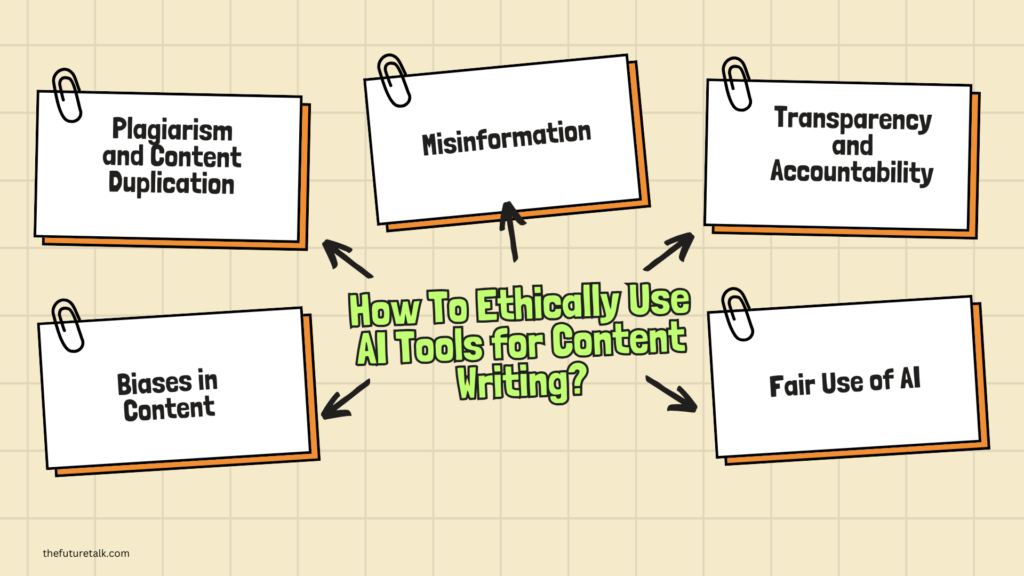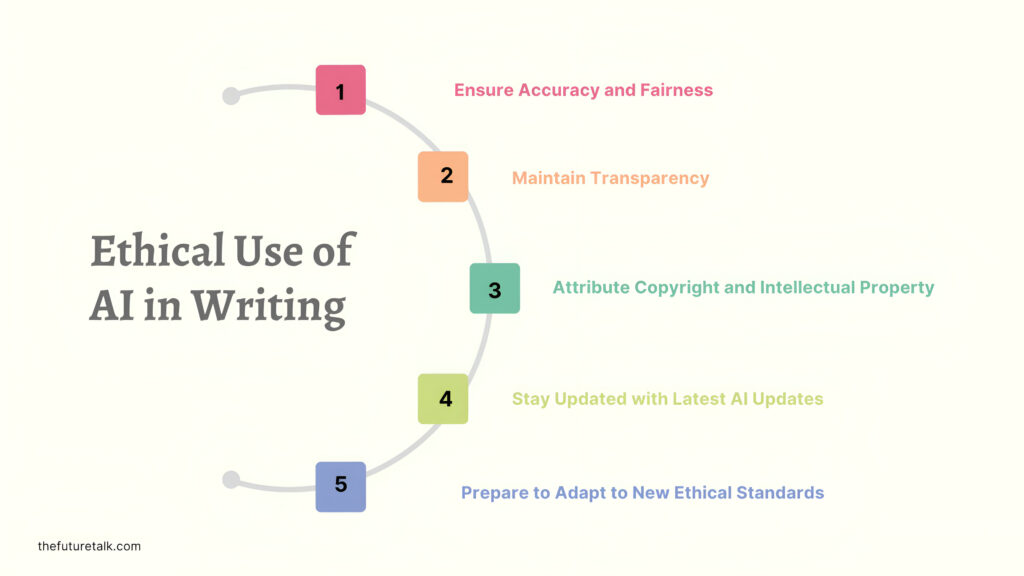
Artificial Intelligence (AI) tools are gaining significant popularity not only among developers or tech professionals. Writers, marketers, and content creators are also rapidly using AI tools for drafting articles, ideation, composing emails, or editing content. As AI can help at almost every stage of the writing process, there are certain factors every content curator needs to consider.
In this article, we will delve into how you can ethically use AI tools for content creation, ethical guidelines and best practices for content writing, and review some popular AI tools available today.
So, without wasting time, let’s get started!
Why AI in Content Writing?
Everyone today talks about the effectiveness of artificial intelligence. However, many are also concerned about the impact of AI on job replacement as it automates the working process, eliminating the need for human intervention.
There are several areas where AI has a significant positive impact such as content writing and idea generation. If used ethically, AI can provide numerous benefits to content writers and bloggers. AI can help content developers and writers with fresh idea suggestions, grammar and content style improvement, content adherence to a consistent tone and style, and readability.
Also Read: Is AI Replacing Content Writers or Empowering Them?
Benefits of AI in Content Writing
According to reports, ChatGPT positions on top when it comes to using AI in content writing. Many people using ChatGPT for content writing are satisfied with the sufficient answers they want for their articles or blogs. Many use ChatGPT for topic and idea generation.
According to a user, ChatGPT has helped him a lot in enhancing his content writing skills. While ChatGPT can be a valuable AI tool for research, ideation, and drafting a blog, many are concerned with fact-checking, proofreading, and human touch.
There are also several cases where writers use an AI tool just to create an article on the topic given to them and get it posted on the website. This not only reduces the content quality but also turns down the writer’s calibre. This is where the ethical use of AI comes in for content creation.
Ethical Use of AI in Writing
Today, writers, content creators, and businesses are all turning to AI tools for tasks like drafting articles, creating content, optimizing text, and proofreading. However, the efficiency of these tools is delivered when using them ethically.
There is no doubt that AI tools have a crucial impact on how we approach writing and content creation. They can suggest topics, generate texts in seconds, suggest edits and improvements, and even resonate with particular writing styles. On the other hand, they also raise concerns about misinformation, plagiarism, bias, and transparency.
So, how can you use AI tools for content writing ethically?
1. Plagiarism and Content Duplication
We all have heavily relied on AI-generated content, whether it is for creating articles, ideas or websites, it might present plagiarism and content duplication.
Best practices:
- Review content to avoid plagiarism
- Give proper attribution
- Refine content to add a human touch
2. Misinformation
AI tools are capable of generating vast amounts of content in a fraction of a minute. However, there are possibilities that some content includes plausible-sounding information that may be false or misleading. This generally happens due to a lack of proper data.
Best practices:
- Always verify facts
- Cross-check credible, authoritative sources
- Limit sensitive, data-intensive topics from AI tools
3. Transparency and Accountability
Lack of transparency is another major ethical concern with AI-generated content. Today, AI tools are capable of generating content that may confuse readers to discern whether it is written by a human or machine. What if the content is misleading, harmful, or false and who is accountable?
Best practices:
- Let the readers know if the content is created by AI.
- Take responsibility
- Ensure human involvement and oversight
4. Biases in Content
Sometimes AI tools can produce biased content or discriminatory information. This can happen if an AI tool is trained on biased data, including issues related to race, gender, culture, religion, and socioeconomic status.
Best practice:
- Always review AI-created content for any biases
- Avoid the use of offensive language, or stereotypes
- Use diverse perspectives, voices, and sources
5. Fair Use of AI
Since AI is capable of performing a wide range of tasks including content creation, marketing, and journalism, its fair use is paramount. AI can make your job easier and can even replace you as most people nowadays are concerned about job displacement. This is where the ethical use of AI in content writing matters.
Best practices:
- Use AI to augment your skills and creativity
- Maintain originality in your content so that no one can replace you
- Avoid blindly using AI tools for content creation
Guidelines for Ethical Use of AI in Writing
Writers, content creators, bloggers, and content reviewers must follow certain guidelines to ensure the ethical use of AI tools in writing. The following illustration highlights the key guidelines for the ethical use of AI for writing.

Best Practices for Using AI Tools in Content Writing
As AI can generate and make content more effective, there are certain best practices that you must consider when using AI tools for content writing.
Using a Clear Prompt: The AI output depends on your input. Use clear prompts and be specific about the content type, style, and target audience.
Refining the AI-generated Content: After getting AI-generated content, refine it to align with your voice and goals. Always consider AI output a draft that requires refinement.
Maintaining SEO Standards: For writing web content, SEO plays a pivotal role in enhancing content visibility and user engagement. SEO is also crucial to optimize content for search results.
Ensuring Human Creativity: AI is capable of just idea generation and text creation. That is you who needs to ensure that your content includes originality and human creativity.
Considering Ethical Concerns: It is important to be mindful of ethical concerns around misinformation, duplication or plagiarism, and dependency on AI. Always review the AI-generated content and cross-check sources for facts.
Also Read: 10 Best Free AI Tools for Video Creators in 2025
Popular AI Tools for Writing
There are various AI tools that you can use for content writing, research, idea generation, grammar and plagiarism checking, and SEO. Here is a list of some of the top AI tools.
- ChatGPT
- Jasper AI
- Gemini
- Perplexity
- Grammarly
- Copy.ai
- SEOWind
- Surfer SEO
- Sudowrite
- ProWritingAid
Also Read: The Ultimate Glossary: AI Terms You Can’t Afford to Miss
The Final Thought
Artificial Intelligence has been around us for a while and it is not going anywhere. To make the most out of it, users must consider the ethical concerns of AI. As you think about how easy is to use AI in content writing, you must keep in mind all the best practices to not only maintain the content authenticity and originality but also the writer’s creativity.
AI can be a game changer for your writing and enhance your skills and knowledge if it is used ethically. So, before browsing through any AI tool, you must think about all the ethics and then use it to align with your content goals.
You can also use AI detector tools to avoid plagiarism and content duplicity. But is it really the AI detector tools available today reliable to trust? We will discuss “Is the AI detector tool reliable or just a business?” in our next article.
Stay Tuned to The Future Talk for more AI news and insights!